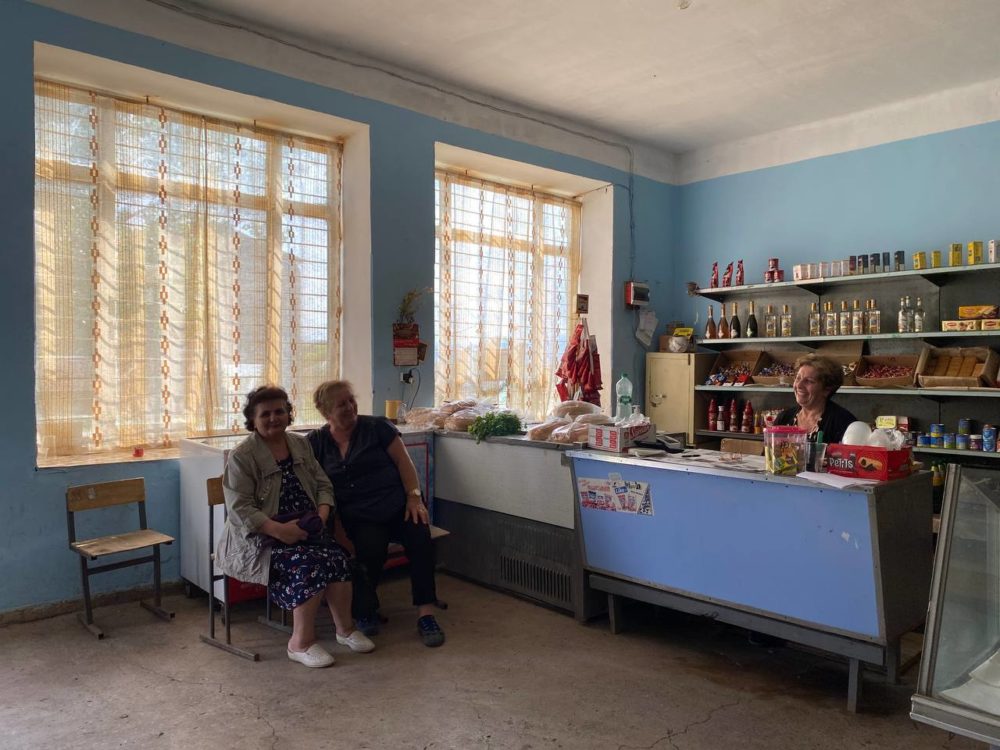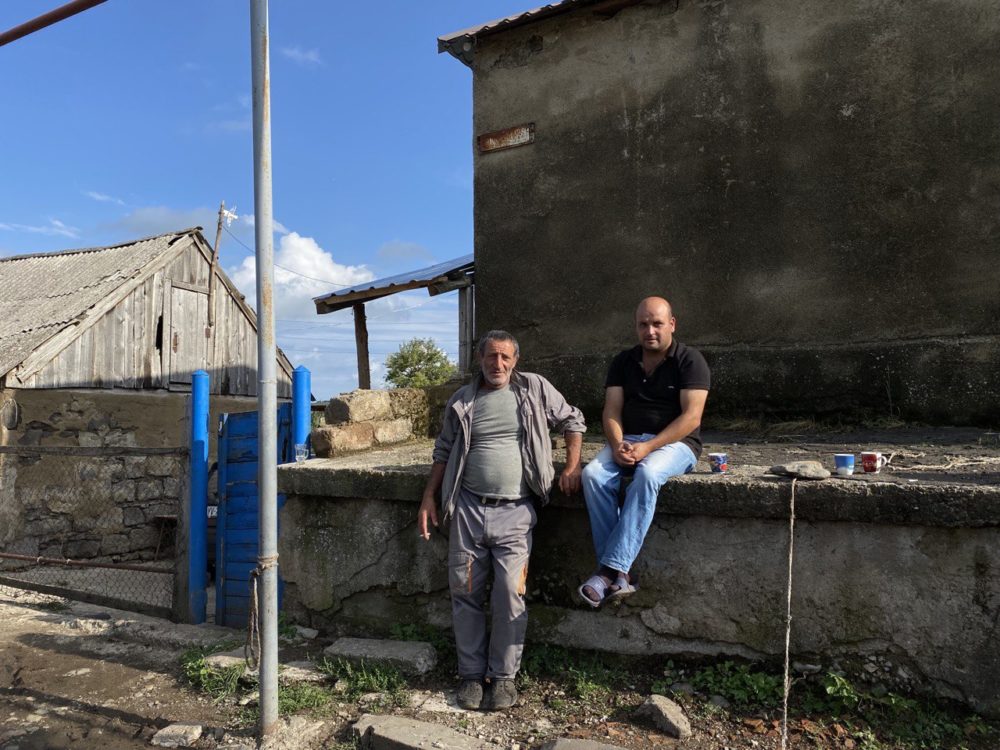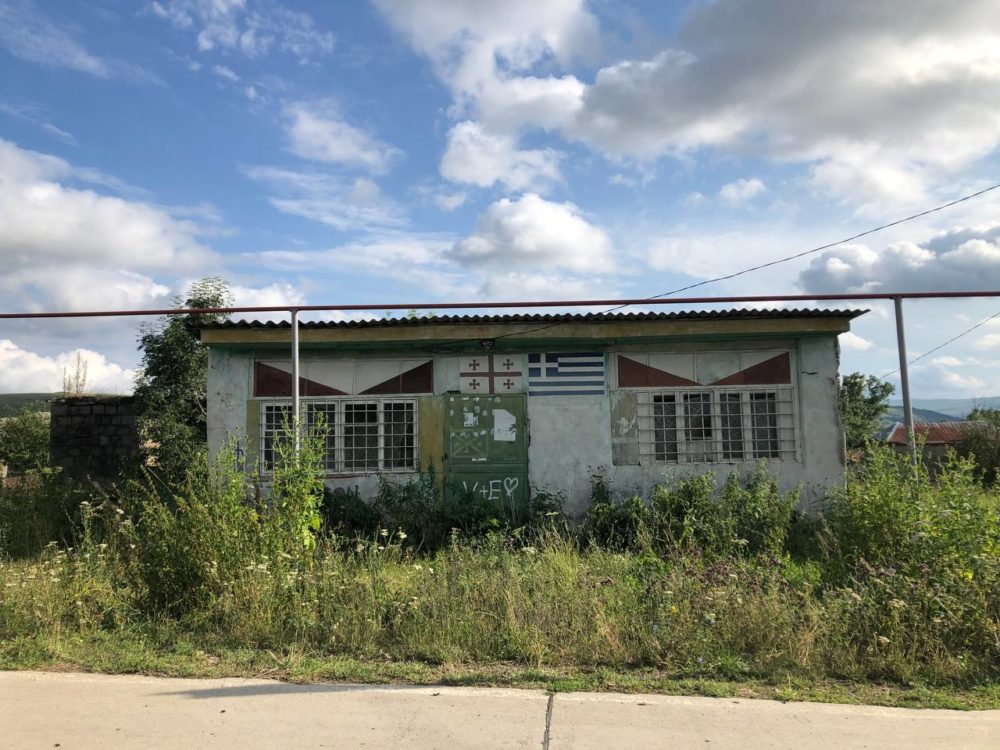Stories
25 Nov 2023
Tsalka Greeks։ from the valleys of Kvemo Kartli to the shores of Greece
It is sunset. White and blue-colored churches, Greek flags hanging from the houses, and people herding cows, creating traffic jams. I am in the village Beshtasheni in Tsalka, Kvemo Kartli, 87 km away from the capital Tbilisi.
In a local shop, I met three women. They introduce themselves as Greeks. I feel they are proud of it. “We always lived happily here with Georgians, Azerbaijanis, Armenians in the nearby villages. I enjoyed wearing beautiful dresses when we had concerts in the village. You never knew who you would meet,” said Tina Karipidou.
Tina says that after the collapse of the Soviet Union, many Greeks left Georgia due to the economic crisis. Mostly, the elderly stayed. And even today, there are very few youngsters in formerly Greek inhabited villages. They visit Georgia in summer when their parents or grandparents come to check on their homes.

Tina was also one of those who left Georgia in the beginning of the 2000s but later returned back.
“I am Greek, but my homeland is Georgia,” another woman interrupts Tina. It is Tina’s relative, Oliko Karipidou.
“I feel at peace here – here is my husband, my home, our cows, my market, neighbors, friends. Winters are harsh, but summers are soft, right?”
After getting Greek citizenship, Oliko returned with her husband while her children remained in Thessaloniki. Seeing cars with Greek and Cypriot numbers is a bit surreal. These cars have made a long road to come where they were, as did their owners.


Most Tsalka Greeks moved to Georgia in the 19th century, fleeing from the suppression they faced in the Ottoman Empire. They came from the modern-day Turkish provinces of Erzerum, Bayburt, and Gümüşhane, located in the inland of East Anatolia.
Tsalka Greeks are also frequently called Tsalka Urums. The term “Urum” is generally used to refer to Turkic-speaking Greeks. While women in the shop chat with me, I see a man in his 50s talking in Urum language with his Azerbaijani neighbor. They say this dialect is closely related to the Azerbaijani language, especially phonetically.

Svetlana Mikhailidi, a native of Edikilisa (Sakdrioni) village, says, “Greeks of East Anatolia faced a choice: either convert to Islam or switch to the Turkish language. People chose to keep their Orthodox Christian religion while adopting the Turkish language.“
Svetlana Mikhailidi and her neighbor recall their old days when the village was full of people: her friends and relatives. Today, most of them reside in Greece or Russia. She, as well as some of her villagers, moved to North Greece, but soon returned to Edikilisa. “I didn’t like it there. People were not as friendly as here.”In her research about Greek migration, a researcher Nika Loladze writes, “the migration process was facilitated by the “open door policy” of the Greek government towards the ethnic Greeks residing in post-Soviet countries.”


In her research about Greek migration, a researcher Nika Loladze writes, “the migration process was facilitated by the “open door policy” of the Greek government towards the ethnic Greeks residing in post-Soviet countries.”

As the Greeks began their mass exodus from Georgia, the Greek villages experienced near-complete abandonment. Later, the Georgian government opted to repopulate the vacant Greek houses with eco-migrants from the Adjara region. Subsequently, when certain Greeks made their way back to Georgia, they encountered housing issues.
Svetlana recalls, “While there were a few disagreements or minor conflicts between Adjarians and Greeks initially, the situation was quickly normalized.”
“I feel home nowhere, but here!” says Svetlana Mikhailidi.

Leave a Comment